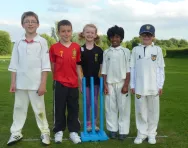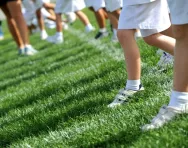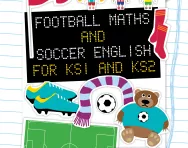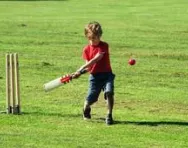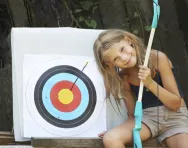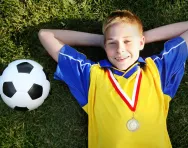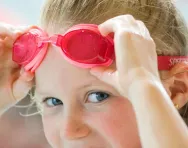Important update from TheSchoolRun
For the past 13 years, TheSchoolRun has been run by a small team of mums working from home, dedicated to providing quality educational resources to primary school parents. Unfortunately, rising supplier costs and falling revenue have made it impossible for us to continue operating, and we’ve had to make the difficult decision to close. The good news: We’ve arranged for another educational provider to take over many of our resources. These will be hosted on a new portal, where the content will be updated and expanded to support your child’s learning.
What this means for subscribers:
- Your subscription is still active, and for now, you can keep using the website as normal — just log in with your usual details to access all our articles and resources*.
- In a few months, all resources will move to the new portal. You’ll continue to have access there until your subscription ends. We’ll send you full details nearer the time.
- As a thank you for your support, we’ll also be sending you 16 primary school eBooks (worth £108.84) to download and keep.
A few changes to be aware of:
- The Learning Journey weekly email has ended, but your child’s plan will still be updated on your dashboard each Monday. Just log in to see the recommended worksheets.
- The 11+ weekly emails have now ended. We sent you all the remaining emails in the series at the end of March — please check your inbox (and spam folder) if you haven’t seen them. You can also follow the full programme here: 11+ Learning Journey.
If you have any questions, please contact us at [email protected]. Thank you for being part of our journey it’s been a privilege to support your family’s learning.
*If you need to reset your password, it will still work as usual. Please check your spam folder if the reset email doesn’t appear in your inbox.
Is your child a sports star?
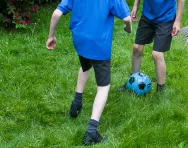
‘My boy’s going to play for England!’ beamed the proud dad on the touchline. His son had just scored a fantastic goal for the under-nines football team; faster, taller and stronger than everyone else on the pitch, the lad certainly looked a cut above the rest.
Dad’s pride was understandable, but needed to be laced with a strong dose of realism. Around two million people play football in the UK yet fewer than 4,000 make a living from the game – and only a tiny fraction go on to reach the level where salaries have seven digits.
After all, a nine-year-old who towers above his peers may not grow much more; as others catch up, the advantages that once made them exceptional will gradually disappear.

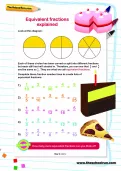
Start a unqiue learning programme!
- Weekly programme for each school year
- Worksheets sent direct to your inbox
- Keeps your child's learning on track
Whether or not your child has a significant talent for sport, an important aim of PE in primary schools is to nurture the physical ability of all pupils, as well as supporting those higher ability children to excel.
‘We want every child to get the right level of support to maximise their potential throughout their school life and beyond,’ says primary school sports expert Elaine Burgess. ‘If your child is involved in sport at a high level outside school, make sure this is recorded.’
Early specialism in sport: the downsides
Early sporting success can bring a tendency to specialise too soon. Our ambitious dad may tell his son to give up other activities in a belief that concentrating solely on football will help him – when in fact it may be more of a hindrance. Not only does this bring the risk of repetitive strain injuries, it may also limit the broader physical, creative and cognitive development that comes from taking part in a wide range of pursuits.
‘Parents have to realise that the chances of their son playing in the Premier League are tiny,’ says Burgess. ‘If they focus all their efforts on one sport, the big setback – rejection, injury, whatever it may be – can leave a child without anything to fall back on. At 15 or 16, a child who can only kick a ball and can’t catch, throw, dance, swim, somersault or play tennis has far fewer options.’
That’s particularly important given the approach now taken to talent identification across many sports. Several members of Team GB’s Olympic handball squad who competed at London 2012 were recruited not from a search for world-class handball players, but from an initiative designed simply to find tall people with good all-round ability.
Meanwhile, Olympic skeleton bob gold medallist Lizzy Yarnold was originally destined for a career in equestrianism.
‘Take pleasure in your child’s athletic success,’ says Burgess. 'Encourage them to be ambitious but, crucially, keep them playing as many sports as possible.’
There’s so much out there to enjoy – and, truth is, the gap between even the most starry-eyed 10-year-old footballer and that million-pound contract is unbelievably wide.
Is your child talented in PE and sport?
Are they:
- Quick to learn skills or activities
- Confident and responsive to new challenges
- Motivated to practise and keen to perform
- Without fear of failure
- Able to reflect on how they performed and how to improve
- Keen to take the lead
- Fit for their age
- Fluent and co-ordinated in their movement
- Spatially aware
If so, they may be considered gifted, talented or 'more able' in sport, and given opportunities to develop their skills at school. This might be, for example, by playing for a school sports team or being a 'sports ambassador,' which could involve representing the school at sporting events or mentoring younger children.
You can help your child develop their skills and talents outside school, not just by encouraging them to participate in their favourite sport, but also by giving them opportunities to build their overall strength, fitness, discipline and versatility, for instance by letting them join a different sports club or take part in Junior Parkruns: free running events for kids that take place all over the country.
As Lizzy Yarnold discovered, there are many more sports than the one you thought you were good at!
